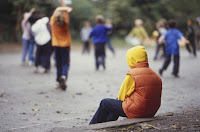Making the Abstract Concrete: Social Skills Interventions for Kids on the Spectrum

“Abstraction” is a relative concept related to the age of the youngster. For a 3-year-old, “the day after tomorrow” is a highly abstract concept. But for a teenager, “the day after tomorrow” is relatively concrete. The ability to think abstractly is associated with the ability to transfer what is learned from one context to another. For instance, a child who is a reasonably abstract thinker may learn the organization of an essay in English class, and then transfer that learning to his writing in Social Studies class. Conversely, a concrete thinker may need to be specifically taught in both classes. Relative to some academic skills, teaching "social competence" involves abstract skills and concepts. Because young people with Asperger’s (AS) and High-Functioning Autism (HFA) tend to be concrete and literal, the abstract nature of these interpersonal skills (e.g., kindness, reciprocity, friendships, thoughts, feelings, etc.) makes them especially difficult to master.

